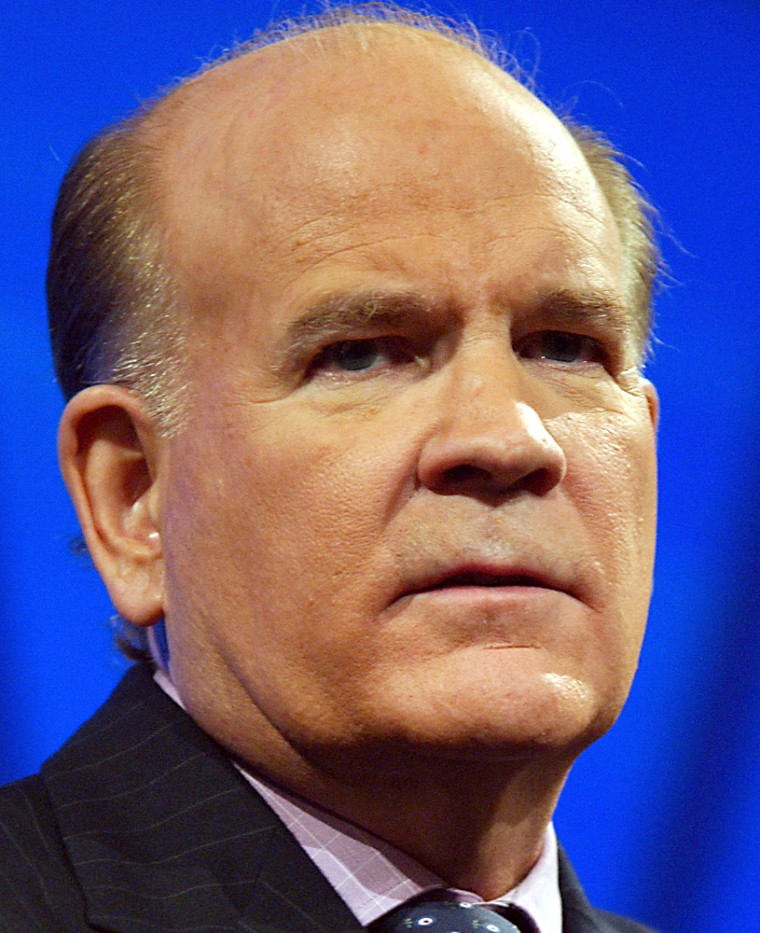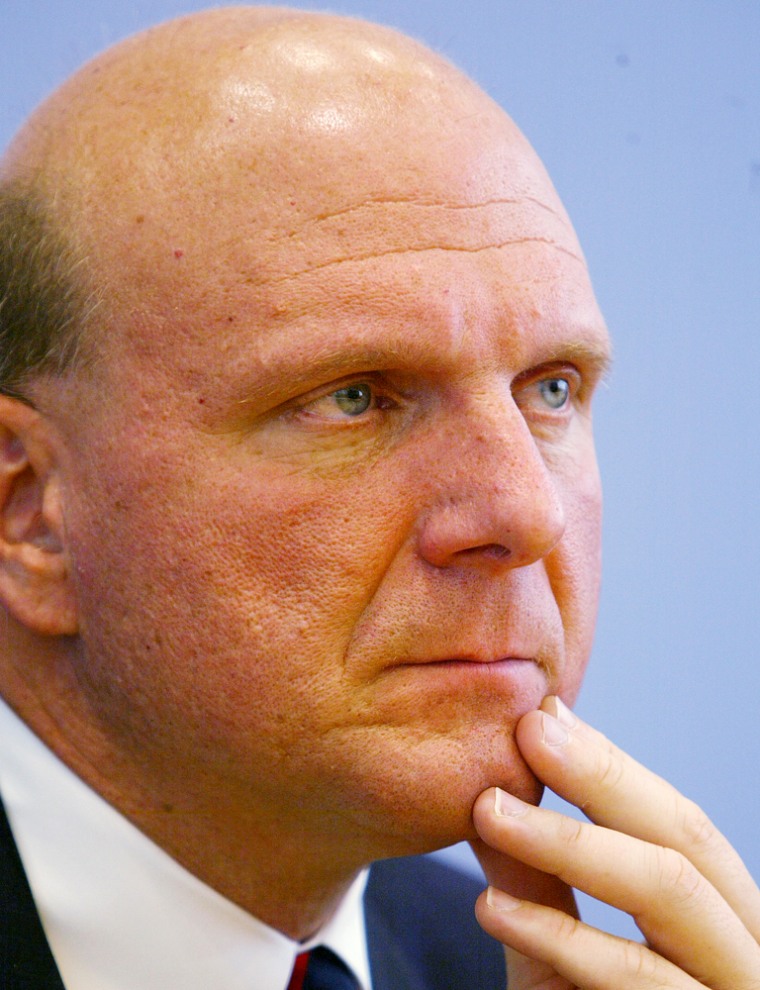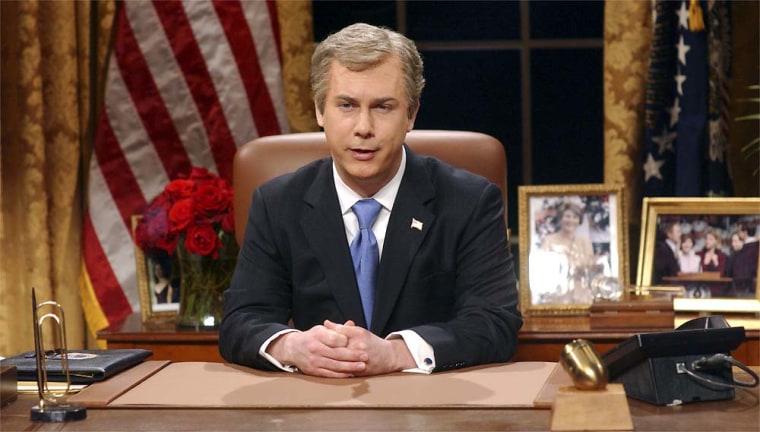President Bush is a liberal Democrat.
Federal campaign finance records reveal that Bush gave three political contributions totaling $750 to former Vermont Gov. Howard Dean’s Democratic presidential campaign last year. This spring — perhaps knowing a winner when he sees one — the president switched allegiances and gave $250 to Sen. John Kerry of Massachusetts.
‘Live, from New York, it’s Saturday Night!’
This is not fantasy. But it is comedy. Those donations were actually made by Chris Parnell, the actor who has frequently played Bush on “Saturday Night Live.”
Donations to candidates for federal offices, such as president or U.S. representative, are public record, available for review by anyone. In the past, however, it would have been hard for you to pull these contributions together into a full accounting of Parnell’s political activism.
Raw Federal Election Commission data are difficult to sift through. And while a variety of public-spirited organizations routinely compile the data and present them online, they have always withheld specifically identifiable information like addresses and, in some cases, employers.
Unless you already knew Parnell’s formal name — Thomas Parnell, under which he made the contributions — you would probably never find him in the thousands of records the FEC has compiled since January of last year. And without his address — he has two of them, in New York and Los Angeles — you would probably also have trouble distinguishing him from other politically active Thomas and Chris Parnells.
Indeed, even in the Internet age, the best way to nail down what Chris Parnell contributed to candidates for public office would be to ask him.
Until now.

This election cycle has seen the creation of Fundrace.org, a Web site devoted solely to making it easy to identify anyone who gives money to presidential campaigns. It is the brainchild of Eyebeam, a technology-focused non-profit organization in New York.
Fundrace does two things different from the other political Web sites: It provides all the information the donor must submit with his or her check — including home addresses and employers’ names — and it “geo-codes” the data to make them readable in easy-to-understand color-coded maps, by pinpointing each address by latitude and longitude.
That makes it possible to learn quickly that Thomas Parnell of Los Angeles and New York and Chris Parnell of “Saturday Night Live” are one and the same. They have the same addresses and work as actors for NBC’s late-night comedy show. With that specific information, you can then cross-reference the databases of contributions to congressional candidates and political action committees at other Web sites, such as Opensecrets.org and Political Money Line.
The corporate titans
It is usually at this point that, in the interest of full disclosure, we remind you that MSNBC.com is a joint venture of NBC — the home of “Saturday Night Live” —and Microsoft.
So while we’re in a disclosing kind of mood, and since the information is out there, we thought we’d troll through publicly available contribution records, armed with the microscope that is Fundrace.org, and see just what our corporate parents are up to.

Starting right at the top, we learn that various flavors of Robert Wright (a k a Robert C. Wright and Bob Wright), NBC Universal’s eminently bipartisan chairman and chief executive, gave:
- $5,000 to the Professionals in Advertising Political Action Committee.
- $2,000 to President Bush’s re-election campaign.
- $2,000 to the campaigns or committees of Sen. Chris Dodd, D-Conn., Sen. Charles Schumer, D-N.Y., and Rep. Patrick Kennedy, D-R.I.
- $1,000 to the campaigns or committees of Sen. Judd Gregg, R-N.H., Sen. Patrick Leahy, D-Vt., Sen. Bill Nelson, D-Fla., Rep. Eliot Engel, D-N.Y., Rep. Ray Lahood, D-Ill., and Rep. Edward Markey, D-Mass.
Wright’s counterparts at Microsoft, Chairman Bill Gates and Chief Executive Steve Ballmer, gave $2,000 to Bush’s re-election campaign. That was all Gates is recorded as having donated; Ballmer, by contrast, contributed to a wide variety of campaigns and causes of both parties, including the campaign committee of Sen. Patty Murray, D-Wash., and Americans for a Republican Majority.
Following the money too far?
Of course, a lot of people find it unsettling to learn that their political activism can yield a road map to their front doors.
“Fundrace has developed a tool that can be used for snooping,” said Beth Givens, director of the Privacy Rights Clearinghouse, a non-partisan public interest group in San Diego.
Givens is a former librarian who, on balance, is an advocate of opening public records. She said in an interview that she doesn’t believe records of political contributors should be closed. But some people have legitimate reasons to keep their addresses or their employers secret: victims of stalkers or domestic abuse, teachers, court officials, doctors. They shouldn’t have to sacrifice the right to take part in the political process just so they can remain safe, she believes.
The issue is “really challenging,” she said. “There’s no cut-and-dried answer.” Her compromise: Keep the original data open at the FEC but require that uniquely identifying markers like home addresses be removed before records are posted on the Web.
Fundrace’s backers say scrubbing the records not only would defeat the purpose — full openness of public information — but it would also put ordinary citizens at a disadvantage. Political parties and activist groups have large staffs that can sift through FEC databases, said Jonah Peretti, director of research and development at Eyebeam. The rest of us don’t.
Fundrace has gotten “mixed responses” to its use of the data from the FEC itself, but “they’re the one that discloses that information. Then they put it all on their Web site,” Peretti said in an interview. All Fundrace does is “grab that file ... and make it so you can search in a way that you can’t search anywhere else.”
“The general idea — the reason the information is disclosed — is that the public should know where money in politics is coming from,” he said. “We don’t want to live in a society where a few powerful individuals are secretly funneling money to a candidate and affecting the outcome of an election.”
And there is an appetite for the information. Fundrace and similar Web sites can be utterly enthralling devourers of free time.
Traffic to Fundrace, Peretti said, has been “much higher than we anticipated” for what essentially is a part-time research-and-development demonstration. Eyebeam hopes to “rapidly prototype new ideas” to further parse the FEC data, to allow head-to-head candidate comparisons, for example, or track contributions by keywords, he said.
The ABCs of NBC
But back to who gave what. That’s what you’re really reading for.
Hundreds, if not thousands, of Microsoft employees give money. But you’ve never heard of them, so who really cares? But at NBC:
- Courteney Cox, one-sixth of the “Friends,” gave $1,000 to Rep. Dick Gephardt of Missouri, using her married name, Courteney Arquette. Actor David Arquette, her husband, preferred Kerry, to the tune of $2,000.
- Kelsey Grammer, late of “Frasier,” is that rarest of creatures, a Hollywood star who is both Republican and cool. He gave $2,000 to Bush. But Peri Gilpin, who played Roz, likes Kerry, whom she gave $2,000.
- Debra Messing (“Grace” of “Will &”) is a centrist Democratic Leadership Committee-style Democrat. She gave $2,000 last year to Sen. Joseph Lieberman of Connecticut. But Shelley Morrison, who plays Grace’s Salvadoran housekeeper, is a liberal Democrat. She gave $1,000 to Rep. Dennis Kucinich of Ohio.
- A certain Gerald Springer gave $1,000 to a Democratic Senate campaign in Illinois. Cross-referencing the available online information quickly reveals that Gerald Springer is better known as Jerry Springer, who figures into this article because his talk show is produced in Chicago by NBC Studios.
As for journalists, they largely do not take sides, at least as far as their wallets are concerned. We could find records for few editorial staffers at NBC News, MSNBC TV or MSNBC.com.
There are at least two notable exceptions: CNBC analyst Hilary Kramer gave $1,000 to Kerry. And NBC Sports Chairman Dick Ebersol is a very active Democrat, having donated to the campaigns or political committees of Wesley Clark, Sen. Hillary Rodham Clinton, D-N.Y., and Dodd.
And then there is Barbra Streisand, whom we can (just barely) squeeze into this article because she has appeared on NBC programs.
Streisand, a noted Democratic activist of long standing, believes in covering her bets. Since January of last year, she has contributed to three presidential candidates:
She gave the maximum $2,000 to Kerry. She gave $1,000 to Gephardt.
And she gave $1,000 to the Rev. Al Sharpton. After all, you never know ...
